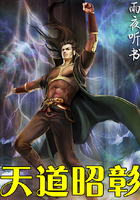"He may flirt with Mrs. Creighton, but, if I am not mistaken, he intends to offer himself before long to Miss Wyllys; and I thought you had not remarked his advances."
"I fancy, dear Aunt, that men like Mr. Stryker seldom commit themselves unless they feel pretty sure of success."
The conversation was here interrupted, Elinor was engaged to ride with Mr. Wyllys, who now returned from the reading-room for his grand-daughter. Mrs. Creighton was also going out with her brother, and proposed the two parties joining; an invitation which Mr. Wyllys had very readily accepted. The horses were ordered, Elinor was soon equipped, and on joining Mrs. Creighton at the door, she was assisted to mount by Mr. Ellsworth. Mr. Stryker had also been invited to ride with them by the pretty widow.
It was a lovely morning, and they moved off gaily on one of the roads leading to Saratoga Lake; Elinor enjoying the air and the exercise, Mr. Ellsworth at her side, doing his best to make his society agreeable, Mrs. Creighton engaged in ****** a conquest of the two gentlemen between whom she rode. Yes, we are obliged to confess the fact; on her part at least, there was nothing wanting to make up a flirtation with Mr. Wyllys. The widow belonged to that class of ladies, whose thirst for admiration really seems insatiable, and who appear anxious to compel all who approach them to feel the effect of their charms. Elinor would have been frightened, had she been aware of the attack made that morning by Mrs. Creighton, on the peace of her excellent grandfather, now in his seventy-third year. Not that the lady neglected Mr. Stryker--by no means; she was very capable of managing two affairs of the kind at the same moment. All the remarks she addressed particularly to Mr. Wyllys, were sensible and lady-like; those she made to Mr. Stryker, were clever, worldly, and piquant; while the general tone of her conversation was always a well-bred medley of much fashionable levity, with some good sense and propriety. Mr. Stryker scarcely knew whether to be pleased, or to regret that he was obliged to ride at her side. He had lately become particularly anxious to advance in the good graces of Miss Elinor Wyllys, for two reasons; he had lost money, and was very desirous of appropriating some of Elinor's to his own use; and he had also felt himself to be in imminent danger of falling in love with Mrs. Creighton, and he wished to put it out of his own power to offer himself to her in a moment of weakness.
Much as he admired the beauty, the wit, and the worldly spirit of the pretty widow, he was half-afraid of her; he judged her by himself; he knew that she was artful, and he knew that she was poor; for her late husband, Mr. Creighton, during a short married life, had run through all his wife's property, as well as his own, and his widow was now entirely dependent upon her brother.
The attention of the two gentlemen was not, however, entirely engrossed by Mrs. Creighton. Mr. Stryker was by no means willing to resign the field to his rival, Mr. Ellsworth; and Mr. Wyllys was not so much charmed by the conversation of his fair companion, but that his eye could rest with pleasure on the couple before him, as he thought there was every probability that Elinor would at length gratify his long-cherished wish, and become the wife of a man he believed worthy of her. As the party halted for a few moments on the bank of the Lake, Mr. Wyllys was particularly struck with the expression of spirit and interest with which Elinor was listening to Mr. Ellsworth's description of the lakes of Killarney, which he had seen during his last visit to Europe; and when the gentleman had added a ludicrous account of some Paddyism of his guide, she laughed so gaily that the sound rejoiced her grandfather's heart.
Elinor had long since regained her former cheerfulness. For a time, Harry's desertion had made her sad, but she soon felt it a duty to shake off every appearance of gloom, for the sake of her grandfather and aunt, whose happiness was so deeply interwoven with her own. Religious motives also strengthened her determination to resist every repining feeling. The true spirit of cheerfulness is, in fact, the fruit of two of the greatest virtues of Christianity--steadfast faith, and unfeigned humility; and it is akin to thankfulness, which is only the natural consequence of a sense of our own imperfections, and of the unmerited goodness of Providence.
"We have had a charming ride, Miss Wyllys!" said Mrs. Creighton, as the party returned to the hotel.
"Very pleasant," said Elinor.
"Delightful!" exclaimed Mr. Ellsworth. "I hope we shall have such another every day."
"Then I must try and find an animal, with rather better paces than the one which has the honour of carrying me at present," said Mr. Stryker.
"But Mrs. Creighton has been so very agreeable, that I should think you would have been happy to accompany her on the worst horse in Saratoga," observed Mr. Wyllys.
"Only too agreeable," replied Mr. Stryker, as he helped the lady to dismount, while Mr. Ellsworth performed the same service to Elinor.














